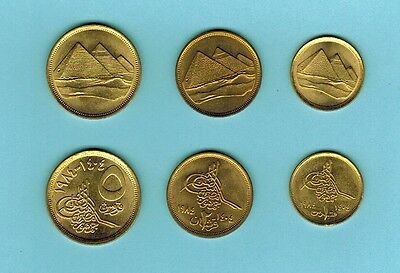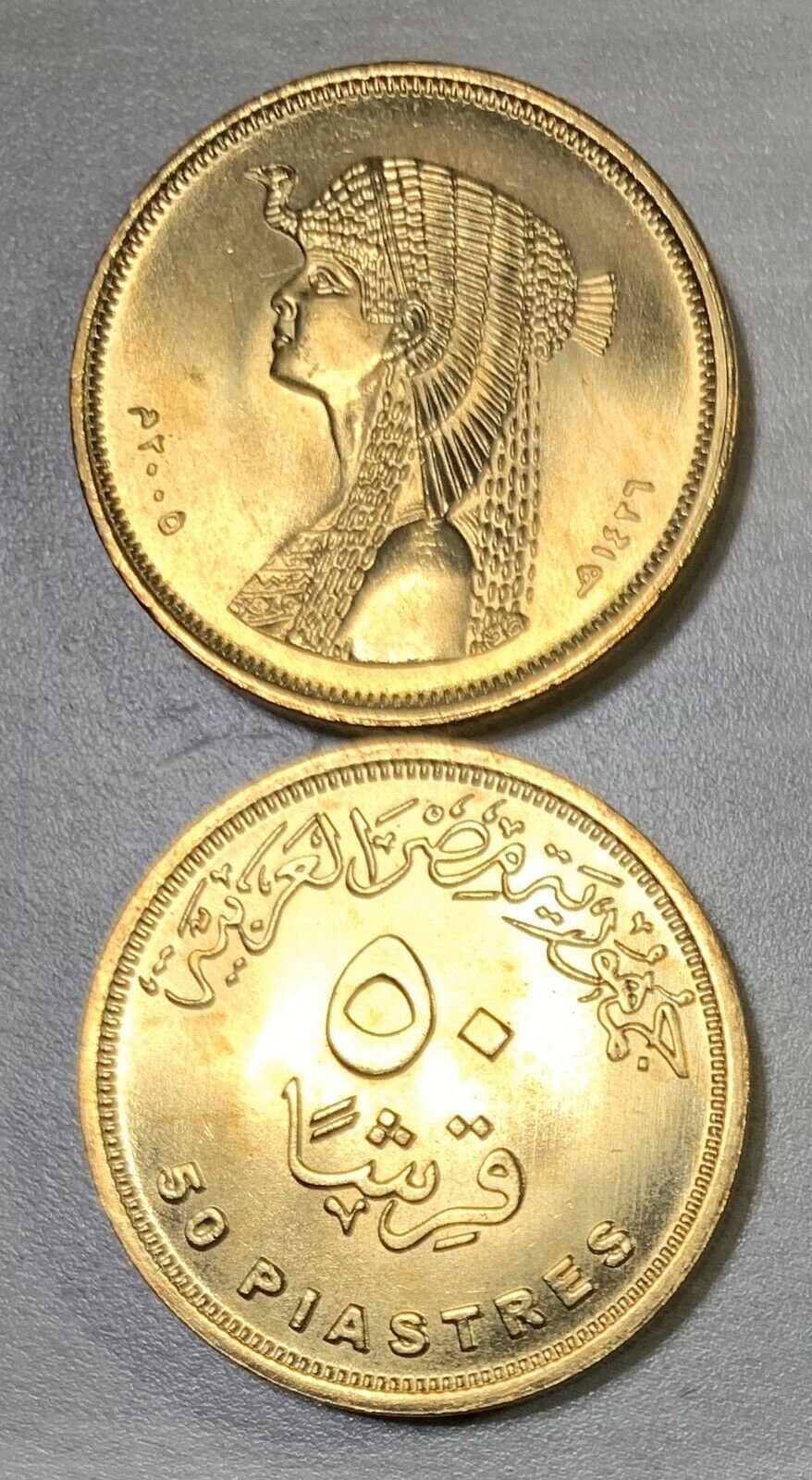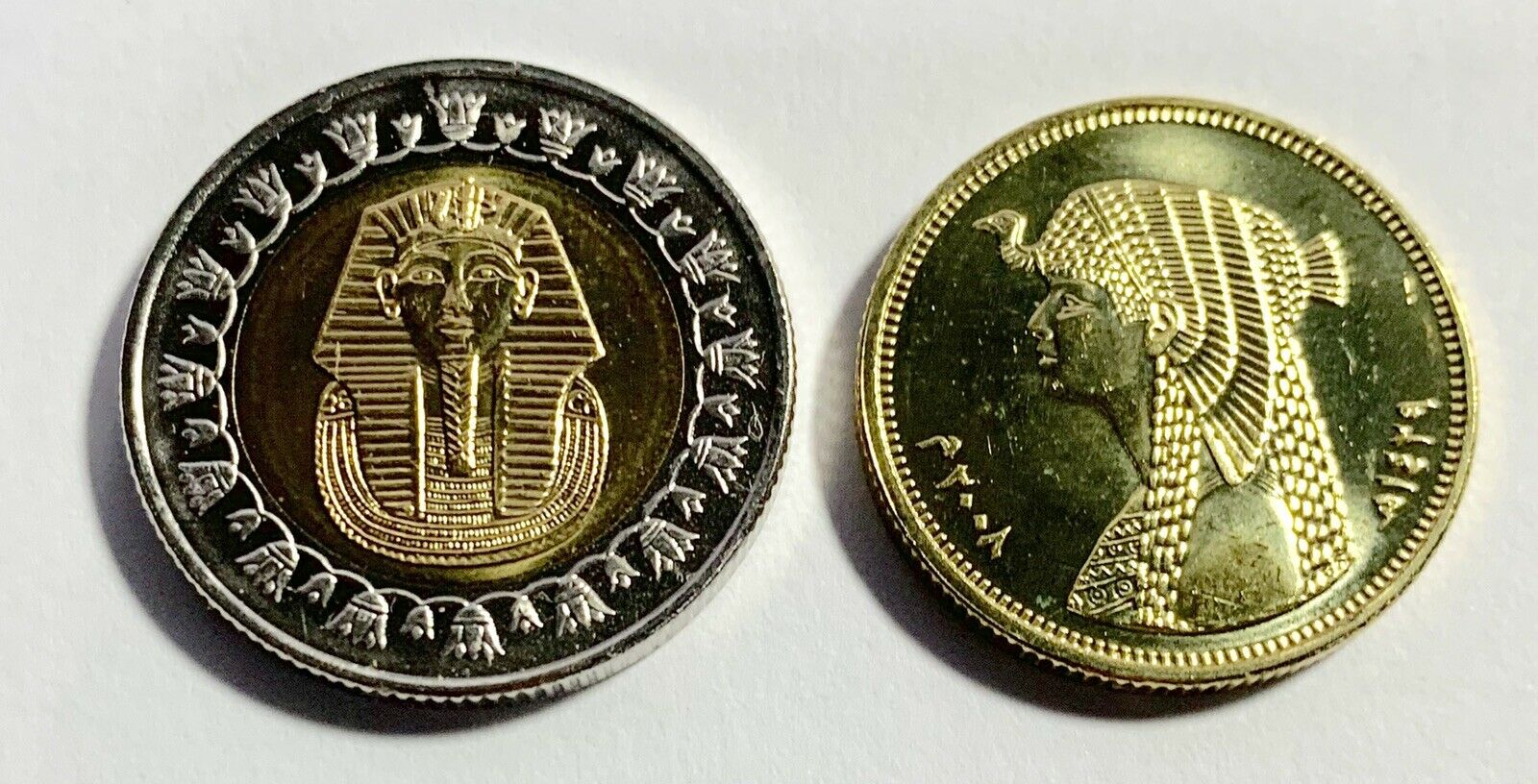-40%
Rare genuine Islamic para coin/OTTOMAN Cairo Egypt Osman III AH1168/AD1755
$ 10.29
- Description
- Size Guide
Description
OTTOMAN EMPIRE Cairo, Egypt, AfricaOttoman SILVER coin
measuring 14-15mm. in diameter.
.33gm. (VF)
Rare and interesting as pictured. One hole. Original tone.
Authenticity guaranteed.
Coin is in good condition and very rare and nice inclusion to the finest collection.
Osman III (Ottoman Turkish: عثمان ثالث ‘Osmān-i sālis; 2 January 1699 – 30 October 1757) was the Sultan of the Ottoman Empire from 1754 to 1757.
Osman III was born on January 2, 1699 in the Edirne Palace. His father was Mustafa II and his mother was Şehsuvar Sultan. He was the younger half-brother of Mahmud I. When his father was deposed from the throne in 1703, he was taken back to Istanbul and imprisoned in the Kafes. Osman III lived in the Kafes for 51 years.
He was secretly circumcised on 17 April 1705 with the other princes here. He was among the princes in Ahmed's entourage. He also later made trips to the sultan inside and outside the city. Together with his elder brother Mahmud's embassy on October 1, 1730, he became the biggest prince waiting for the throne.
Osman III lived most of his life as a prisoner in the palace, and as a consequence, he had some behavioural peculiarities when he took the throne. Unlike previous sultans, he hated music, and banished all musicians from the palace. According to Baron de Tott, Osman III was an angry and modest type of ruler.
Audience of French ambassador Charles de Vergennes with Sultan Osman III in 1755.
Osman III's first activity was to choose government officials to work with. During his reign, the changes he made in high-level government duties, especially Grand Vizier, can be considered as attempts to reduce the extremely weighted role of the charitable authority[vague] in the previous sultan's era.
In the severe storm of March 1756, an Egyptian galleon ran ashore in Kumkapı at dusk. Due to the storm, 600 passengers could not be evacuated. The sultan, who came to the shore, took all the passengers by bringing barges from the shipyard. He ordered the construction of the Ahırkapı Lighthouse in Istanbul to prevent such incidents.
The first procession of his enthronement was held on 14 December 1754. The historians of that time didn’t write the events happening in the empire because of severe and freezing cold of January 1755. Osman was responsible for a firman in 1757 that preserved the Status Quo of various Holy Land sites for Christians, Muslims, and Jews.
In the second year of his reign, Osman lost his mother, Şehsuvar Sultan, who had been in contact with his religiousness. Afterward, the oldest prince, Mehmed, died of illness on December 22, 1756. According to various sources, the funeral of the prince, controlled by the quarry, grand vizier and sheikh al-Islam, was attended by 5,000 people. Some contemporary sources said that the prince was poisoned and killed on the initiative of Köse Mustafa Pasha, the next sultan of the third sultan, Köse Mustafa Pasha.
It is noted that, in this period, provisions were sent against banditry in Anatolia and Rumelia, and especially the movements of headless beams, and that the sultan was also interested in these issues. Some measures were taken against the tribes of Bozulus and Cihanbeyli, the Armenians due to the turmoil in Iran, the bandits around Erzurum and Sivas, and the famous leader Karaosmanoğlu Hacı Mustafa Ağa. The latter was captured and executed, and his head was brought to Istanbul on 5 December 1755.
Architecture
Osman is famous for building Nuruosmaniye Mosque, whose construction started during the reign of Mahmud I. Nuruosmaniye Complex, also known as Osmaniye for a while, consisted of three schools, madrasahs, a factory, a library, a mausoleum, a temporary room, a mesh house, a fountain, an inn, and shops. Osman built a new neighborhood in 1755-56 where Üsküdar Palace and Garden was located, along with houses and shops. He also built the Ihsaniye Mosque and its masjids, both of which stand today as İhsaniye.
Osman III built a fountain in his name in 1755-56; it was destroyed 122 years after its construction.
Death
Osman III died on the night of 30 October 1757. In the early morning, a ceremony was held and his cousin Mustafa III was placed on the throne. The new sultan ordered Osman to be buried in the New Mosque Mausoleum, not in Nuruosmaniye.
Payment methods for USA buyers:< PAYPAL
Payment methods for International buyers - including Canada: PAYPAL, International payment methods are available up on request. Please contact us for more details.
.
Please be sure to include item # & address with your payment. IF REQUESTING A CERTIFICATE PLEASE DO SO AT THE TIME OF PAYMENT AND INCLUDE
Pay me securely with any major credit card through PayPal!
Items will be shipped within 1 to 3 business days of purchase completion.
FREE domestic FIRST CLASS SHIPPING.
INTERNATIONAL .99
(REGISTERED-.00) WE COMBINE SHIPPING.
If you would like to have special shipping, please contact us.
All items will be sent out in protected envelope and boxed if necessary.
Please make your payments on time.
YOU ARE BIDDING ON AN ANCIENT ITEM(S) AS DESCRIBED AND PICTURED ABOVE!!!
Every item offered by cameleoncoins is unconditionally guaranteed to be genuine & authentic.
We can provide a certificate of authenticity or extended return policy by request only!!!
Please include 5 dollars and a short request with your payment if you would like a COA!!!
If in the unlikely event that an item is found to be reproduction, full return privileges are within 14 days of receiving the coins.
We will promptly offer a full refund without hesitation or hassle
.
Please read the auction page prior to contacting US.












